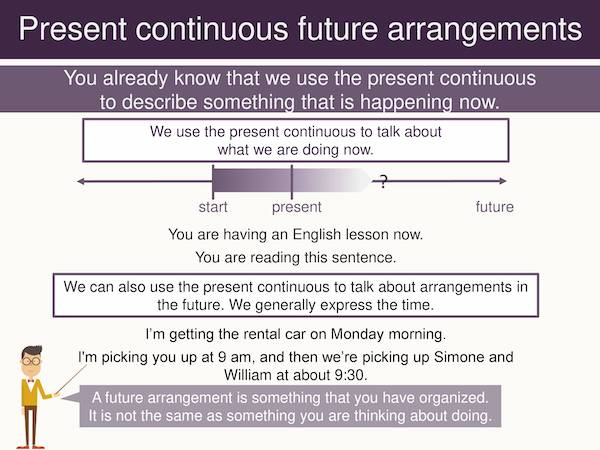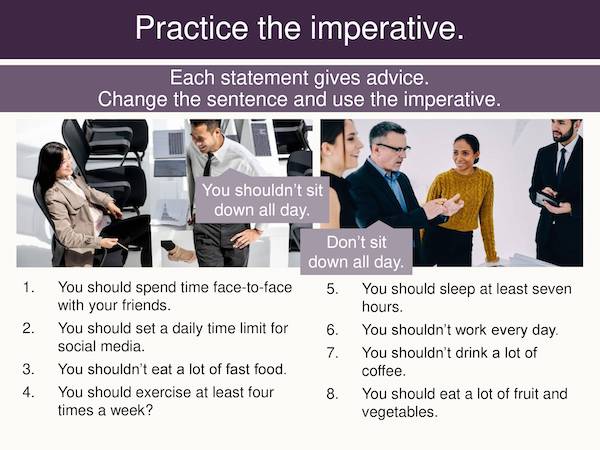{{ post.title }}
{{ post.excerpt }}
Read full storyWe’re excited to release the next round of our B1 lessons in the Off2Class Step-By-Step Curriculum. These are the next 12 lessons for your Pre-Intermediate students, and just like our previously released lessons in the curriculum, Units 28, 29 and 30 contain speaking, listening, reading, and writing Yes/no question activities. These lessons are for teaching ESL students to make offers and suggestions. Here’s Sandra to tell you about it:
.
.
.
In teaching ESL students to make offers and suggestions, we start off with future arrangements and plans.
.

.
By now, your students should be familiar with using going to for future arrangements. At this point, we’ll add in the use of the present continuous for the same purpose. For example:
We’re going to travel to Spain next year(We’d like to do this and have chatted about it).
He’s going to meet us after the football match (He talked about this in vague terms).
When teaching, it’s often helpful to make a distinction between future arrangements and future plans. We suggest teaching that a plan is something that we want or intend to do, while an arrangement is something for which we have already expended time, money, or effort. Here are some examples of arrangements:
I’m taking mom to the airport this afternoon (We discussed this yesterday and agreed on it).
I’m flying to Dubai tomorrow at 8:30 am (I bought my ticket several months ago).
Native speakers of course use both the present continuous and going to for future arrangements. However, it can help your learners if you make this somewhat artificial distinction, at least at this level of proficiency.
Our next step in teaching ESL students to make offers and suggestions is to discuss careers and profession choices, combined with modal verbs.
.

.
This unit features the modal verbs can, have to, and must for necessity, obligation, permission, and prohibition. Before teaching modals, teachers need to understand the concepts of necessity, obligation and prohibition. The ambiguous use of modals in English prompts students to ask a lot of questions about these concepts, so be ready! Here are some examples:
It’s important to understand that there is overlap in the areas of necessity, permission, obligation and prohibition. Further, usage differs significantly across the world, and the usage of modals in these areas is currently changing! Choose your examples carefully and try to keep student focused on the concepts mentioned above. Don’t get bogged down in the details!
In unit 30 we’re ready for teaching ESL students to make offers and suggestions. Students will use the word should and the imperative tense (commands) to give advice.
.

.
We’ll also look at some common expressions that native speakers use in front of should, since it’s important to speak politely when making offers and suggestions! For example:
I don’t think you should work this weekend
is softer and friendlier than:
Don’t work this weekend.
In this unit students will also encounter new uses of verbs followed by to + infinitive.
It’s good to establish verb patterns early so that students don’t feel overwhelmed when they encounter more and more verbs as they progress. Students should already be familiar with some verbs followed by to + infinitive, such as want, and choose, and verbs followed by -ing, such as enjoy. For example:
He wants to become a doctor (verb pattern, some verbs followed by to + infinitive).
I went to the store to buy some milk (infinitive of purpose).
It was difficult to understand the movie. (verb pattern, adjective + to + infinitive).
We know there’s a whole lot more to teaching ESL students to make offers and suggestions. However, we hope that this post presents a few things worth thinking about before you teach the grammar and language in these units.
Leave a reply